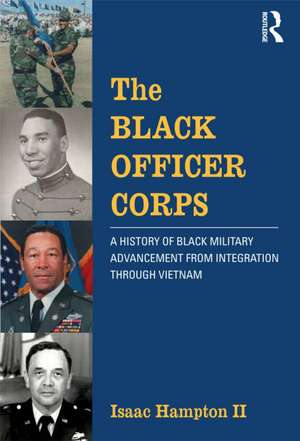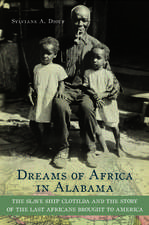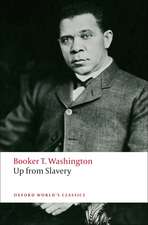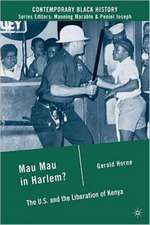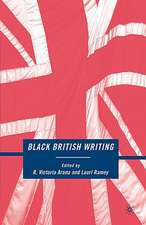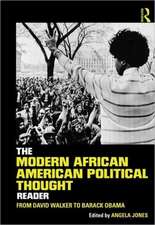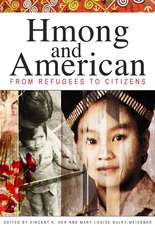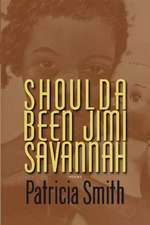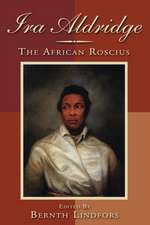The Black Officer Corps: A History of Black Military Advancement from Integration through Vietnam
Autor Isaac Hampton IIen Limba Engleză Paperback – 17 oct 2012
The Black Officer Corps traces segments of the African American officers’ experience from 1946-1973. From generals who served in the Pentagon and Vietnam, to enlisted servicemen and officers' wives, Isaac Hampton has conducted over seventy-five oral history interviews with African American officers. Through their voices, this book illuminates what they dealt with on a day to day basis, including cultural differences, racist attitudes, unfair promotion standards, the civil rights movement, Black Power, and the experience of being in ROTC at Historically Black Colleges. Hampton provides a nuanced study of the people whose service reshaped race relations in the U.S. Armed Forces, ending with how the military attempted to control racism with the creation of the Defense Race Relations Institute of 1971. The Black Officer Corps gives us a much fuller picture of the experience of black officers, and a place to start asking further questions.
| Toate formatele și edițiile | Preț | Express |
|---|---|---|
| Paperback (1) | 365.91 lei 6-8 săpt. | |
| Taylor & Francis – 17 oct 2012 | 365.91 lei 6-8 săpt. | |
| Hardback (1) | 1002.36 lei 6-8 săpt. | |
| Taylor & Francis – 17 oct 2012 | 1002.36 lei 6-8 săpt. |
Preț: 365.91 lei
Nou
Puncte Express: 549
Preț estimativ în valută:
70.02€ • 73.30$ • 57.93£
70.02€ • 73.30$ • 57.93£
Carte tipărită la comandă
Livrare economică 05-19 aprilie
Preluare comenzi: 021 569.72.76
Specificații
ISBN-13: 9780415531924
ISBN-10: 0415531926
Pagini: 256
Ilustrații: 1 table and 20 halftones
Dimensiuni: 152 x 229 x 18 mm
Greutate: 0.36 kg
Ediția:New.
Editura: Taylor & Francis
Colecția Routledge
Locul publicării:Oxford, United Kingdom
ISBN-10: 0415531926
Pagini: 256
Ilustrații: 1 table and 20 halftones
Dimensiuni: 152 x 229 x 18 mm
Greutate: 0.36 kg
Ediția:New.
Editura: Taylor & Francis
Colecția Routledge
Locul publicării:Oxford, United Kingdom
Public țintă
Postgraduate and UndergraduateCuprins
CHAPTER 1 – The Origins of the Negro Military Officer
CHAPTER 2 -- Black Ideological Influences of the 1960s,Civil Rights, Black Power, and Military Service
CHAPTER 3 – Historically Black Colleges and the Reserve Officer Training Corps (ROTC)
CHAPTER 4- Inequities in the Officer Promotion System
CHAPTER 5- The Butler Report
CHAPTER 6 – Analysis and Interpretation of the Butler Report
CHAPTER 7- Racial Tension
CHAPTER 8 – Addressing Racial Tension and the Role the Defense Race Relations Institute (DRRI)
CHAPTER 9 – Anatomy of the African American Enlisted Soldier
CHAPTER 10 – The Role and Significance Of African American Officers Wives CHAPTER 11 – Epilogue
CHAPTER 2 -- Black Ideological Influences of the 1960s,Civil Rights, Black Power, and Military Service
CHAPTER 3 – Historically Black Colleges and the Reserve Officer Training Corps (ROTC)
CHAPTER 4- Inequities in the Officer Promotion System
CHAPTER 5- The Butler Report
CHAPTER 6 – Analysis and Interpretation of the Butler Report
CHAPTER 7- Racial Tension
CHAPTER 8 – Addressing Racial Tension and the Role the Defense Race Relations Institute (DRRI)
CHAPTER 9 – Anatomy of the African American Enlisted Soldier
CHAPTER 10 – The Role and Significance Of African American Officers Wives CHAPTER 11 – Epilogue
Notă biografică
Isaac Hampton II is the U.S. Army South Command Historian at Fort Sam Houston, Texas and Adjunct Professor of History at San Antonio Community College.
Recenzii
"Drawing on numerous primary and secondary sources, The Black Officer Corps chronicles the tremendous struggle waged by African Americans to prove their worth as leaders in peace and war. Hampton has written a detailed and highly readable narrative tracing the black office’s experience from the American Revolution, through the 1980’s. It is an informative and valuable resource for the general reader of black military history."
James E. Westheider, author of Fighting in Vietnam: The Experiences of the U.S. Soldier
"Deeply researched and judiciously argued, Hampton’s book does justice to a long-neglected subject by exploring it in the complex historical context of the Vietnam War era—-its tensions and turmoil, opportunities and transformations."
Christian G. Appy, author of Patriots: The Vietnam War Remembered From all Sides
"Hampton has produced a valuable addition to the literature…[his collected] accounts add to a growing collection of voices and stories that will become a priceless resource for future scholars."
Andrew H. Myers, University of South Carolina Upstate in The American Historical Review
“Hampton’s The Black Officer Corps is a welcome addition to the growing corpus on African Americans’ military experiences. The oral histories that he conducted inform the narrative and underscore his argument that black officers struggled actively but nonradically for equality within the army system, balancing their duty as officers with the larger civil rights struggle.”
Amy Marie Perry Hedrick, University of North Texas
James E. Westheider, author of Fighting in Vietnam: The Experiences of the U.S. Soldier
"Deeply researched and judiciously argued, Hampton’s book does justice to a long-neglected subject by exploring it in the complex historical context of the Vietnam War era—-its tensions and turmoil, opportunities and transformations."
Christian G. Appy, author of Patriots: The Vietnam War Remembered From all Sides
"Hampton has produced a valuable addition to the literature…[his collected] accounts add to a growing collection of voices and stories that will become a priceless resource for future scholars."
Andrew H. Myers, University of South Carolina Upstate in The American Historical Review
“Hampton’s The Black Officer Corps is a welcome addition to the growing corpus on African Americans’ military experiences. The oral histories that he conducted inform the narrative and underscore his argument that black officers struggled actively but nonradically for equality within the army system, balancing their duty as officers with the larger civil rights struggle.”
Amy Marie Perry Hedrick, University of North Texas
Descriere
The U.S. Armed Forces started integrating its services in 1948, and with that push, more African Americans started rising through the ranks to become officers, although the number of black officers has always been much lower than African Americans’ total percentage in the military. Astonishingly, the experiences of these unknown reformers have largely gone unexamined and unreported, until now.
The Black Officer Corps traces segments of the African American officers’ experience from 1946-1973. From generals who served in the Pentagon and Vietnam, to enlisted servicemen and officers' wives, Isaac Hampton has conducted over seventy-five oral history interviews with African American officers. Through their voices, this book illuminates what they dealt with on a day to day basis, including cultural differences, racist attitudes, unfair promotion standards, the civil rights movement, Black Power, and the experience of being in ROTC at Historically Black Colleges. Hampton provides a nuanced study of the people whose service reshaped race relations in the U.S. Armed Forces, ending with how the military attempted to control racism with the creation of the Defense Race Relations Institute of 1971. The Black Officer Corps gives us a much fuller picture of the experience of black officers, and a place to start asking further questions.
The Black Officer Corps traces segments of the African American officers’ experience from 1946-1973. From generals who served in the Pentagon and Vietnam, to enlisted servicemen and officers' wives, Isaac Hampton has conducted over seventy-five oral history interviews with African American officers. Through their voices, this book illuminates what they dealt with on a day to day basis, including cultural differences, racist attitudes, unfair promotion standards, the civil rights movement, Black Power, and the experience of being in ROTC at Historically Black Colleges. Hampton provides a nuanced study of the people whose service reshaped race relations in the U.S. Armed Forces, ending with how the military attempted to control racism with the creation of the Defense Race Relations Institute of 1971. The Black Officer Corps gives us a much fuller picture of the experience of black officers, and a place to start asking further questions.
